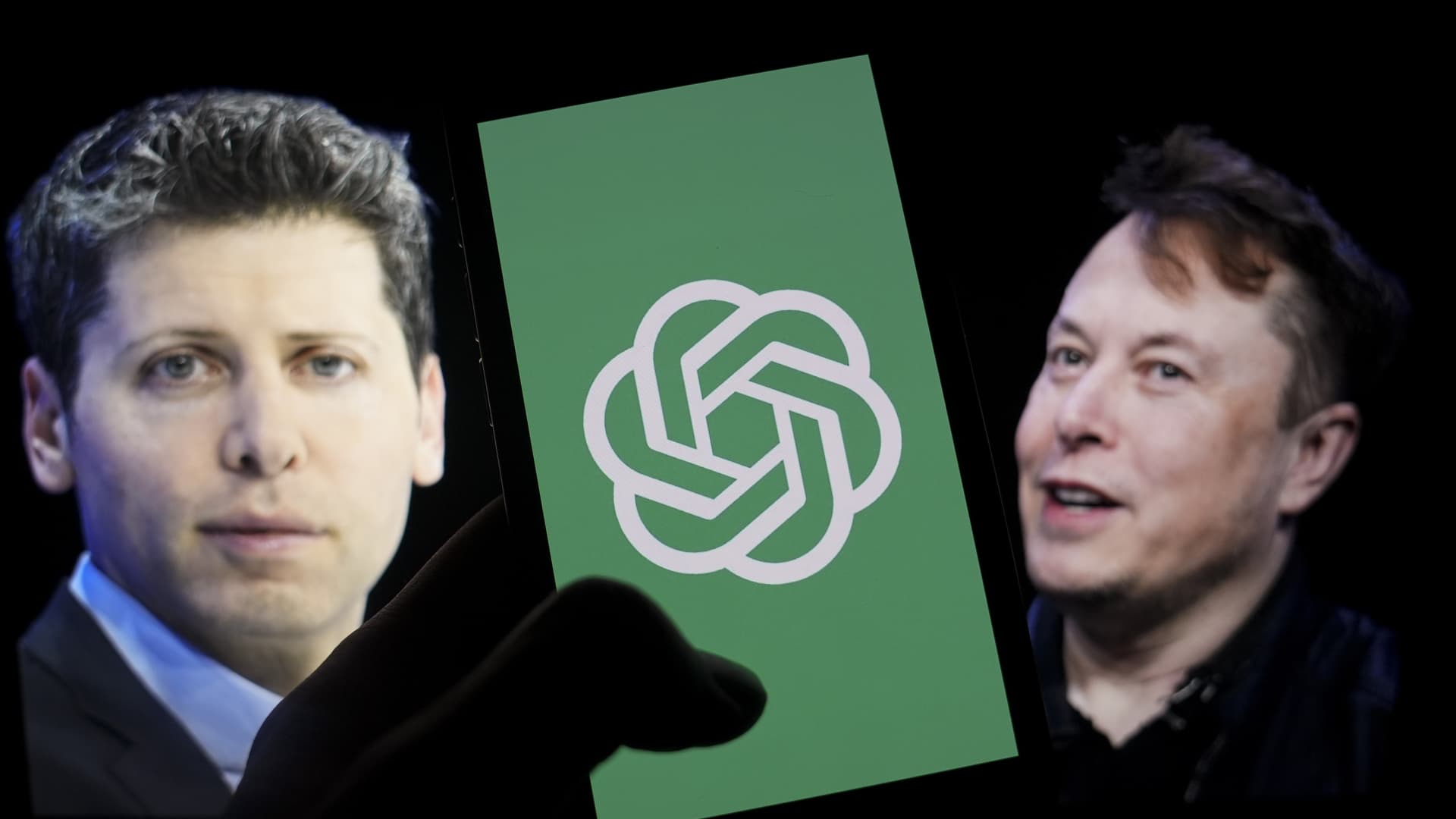OpenAI Dismisses Musk’s Offer: Understanding the Tech Titan’s Proposal
In a striking development within the tech industry, OpenAI has officially rejected a takeover proposal from Elon Musk, describing it as “not a bid at all.” This refusal not only underscores the complexities of corporate dynamics in the AI sector but also raises significant questions about Musk’s intentions and the future of OpenAI. As co-founder of the organization, Musk’s involvement and subsequent proposal have sparked widespread intrigue and speculation. This article delves into the implications of this rejection and explores the underlying motivations that may have driven Musk’s offer.
The Context of Musk’s Proposal
To fully appreciate the ramifications of OpenAI’s dismissal, it’s essential to understand the context in which Musk made his proposal. Elon Musk, a well-known entrepreneur and the CEO of Tesla and SpaceX, has long been a vocal advocate for ethical AI development. He has expressed concerns about the potential dangers of unregulated artificial intelligence, advocating for a cautious approach in the development of AI technologies. Given his background and his role in founding OpenAI in 2015, his recent actions seem to stem from a combination of concern and strategic interest.
In recent years, OpenAI has made significant strides in AI research and development, particularly with the release of models like GPT-3 and DALL-E. The success and visibility of these projects have positioned OpenAI as a leader in the AI space. However, Musk’s proposal, which was quickly dismissed, raises questions about his vision for AI and how he perceives the direction in which OpenAI is heading.
What Led to the Rejection?
OpenAI’s rejection of Musk’s offer highlights several critical factors:
- Mission Alignment: OpenAI’s mission is to ensure that artificial general intelligence (AGI) benefits all of humanity. The organization operates as a capped-profit company, meaning that while it can generate profits, the overarching goal is to prioritize ethical considerations over pure profit motives. Musk’s proposal may not have aligned with this foundational mission.
- Independence and Governance: OpenAI has cultivated a specific governance structure that emphasizes independent research and decision-making. Accepting Musk’s proposal could have potentially jeopardized this independence, leading to conflicts of interest and governance challenges.
- Public Perception: OpenAI is under constant scrutiny from the public and the AI community. Accepting a proposal from Musk, who is often viewed as a controversial figure, could have tarnished OpenAI’s reputation and undermined its credibility as a responsible AI organization.
Musk’s Motivations: A Dual Perspective
Understanding Musk’s motivations requires examining both his public persona and his business acumen. On one hand, Musk’s concerns about AI safety are well-documented. He has frequently warned about the potential existential risks posed by uncontrolled AI systems. His proposal may have been an attempt to regain influence over an organization he helped create, particularly as OpenAI continues to push the boundaries of AI capabilities.
On the other hand, Musk’s business interests cannot be overlooked. With Tesla’s advancements in AI for autonomous driving and SpaceX’s reliance on cutting-edge technology, aligning with OpenAI could have offered strategic advantages for his companies. By having greater control or influence over OpenAI, Musk could potentially steer AI development in a direction that aligns with his vision for the future.
The Broader Implications for AI Development
The rejection of Musk’s proposal carries broader implications for the AI landscape. It emphasizes the need for responsible governance in AI research. OpenAI has positioned itself as a steward of ethical AI development, and maintaining this stance is crucial in a world where AI technologies are rapidly evolving.
Moreover, this incident may serve as a cautionary tale for other tech leaders considering similar moves. The tech industry is rife with collaborations and acquisitions, but the relationship dynamics can be complex, especially when ethical considerations come into play. Companies like OpenAI need to be vigilant to maintain their mission-driven focus.
The Future of OpenAI and Musk’s Role
Looking ahead, the future of OpenAI remains bright, with continued advancements in AI research expected. The organization is likely to further solidify its commitment to ethical AI practices while navigating the competitive landscape of the tech industry. Musk, while currently not in a position of influence over OpenAI, will undoubtedly continue to have a significant impact on the AI discourse through his ventures and public statements.
As OpenAI continues to develop groundbreaking technologies, it will be interesting to see how Musk’s vision for AI safety evolves and how it might intersect with OpenAI’s initiatives. The dialogue between Musk and OpenAI, even if not formalized through collaboration, could be pivotal in shaping the future of artificial intelligence.
Conclusion: A New Chapter for OpenAI
OpenAI’s dismissal of Musk’s takeover proposal marks a significant moment in the evolution of AI governance and corporate dynamics. While Musk’s concerns about AI safety are valid, the rejection illustrates OpenAI’s commitment to its mission and values. As we move forward in an era increasingly defined by advanced AI technologies, the responsibility falls on organizations like OpenAI to lead with integrity and foresight.
In summary, while Musk’s offer was dismissed as “not a bid at all,” the implications of this interaction will resonate throughout the tech community. The ongoing conversation about ethical AI development, corporate governance, and the responsibilities of tech leaders will undoubtedly shape the trajectory of artificial intelligence in the coming years. OpenAI remains committed to its vision, and as the landscape continues to evolve, stakeholders must prioritize collaboration, ethics, and the greater good of humanity.
See more Future Tech Daily

